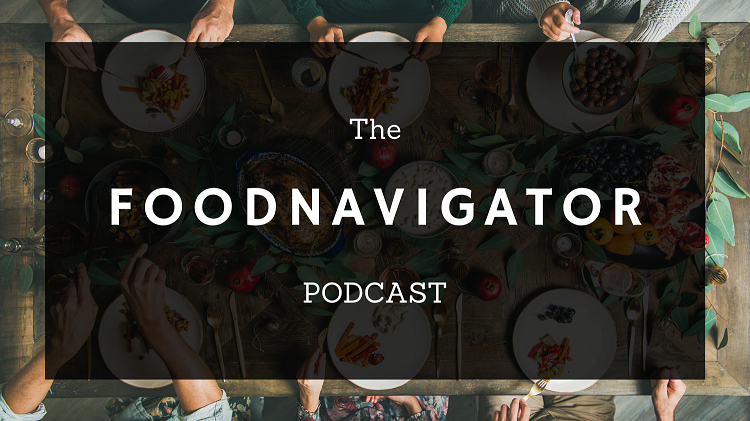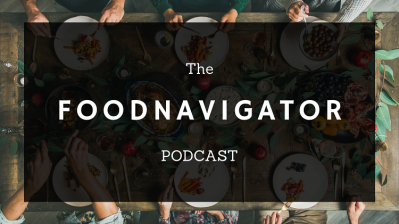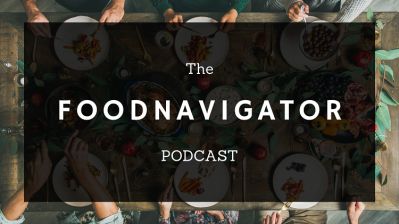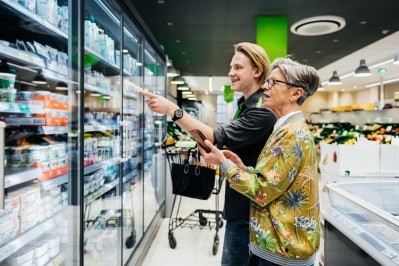The FoodNavigator Podcast: How big is the healthy ageing opportunity?

Older consumers are a growing cohort. For the first time in history, across the globe people aged over 65 now outnumber children under five, according to the UN. By the middle of this century there will be more than twice as many. Here in Europe, the population of over 65s is expected to reach almost 150 million by 2050. All the while, birth rates in the West, for a host of reasons, are falling.
That said, new product launches specifically aimed at older consumers are few and far between. According to market researcher Mintel, just 0.0005% of new product launches in the food and beverage and health and hygiene space directly targeted the over 55s last year. And most of those were in Asia. Europe accounted for only 17% and were most commonly used in healthcare supplements and nutritional drinks.
Why is the industry ignoring what’s potentially a hugely lucrative market? How might food products and ingredients help meet the specific nutritional requirements of older consumers and help them stay healthier for longer?
What can we learn from those diets like the Med diet, or the Japanese Washoku diet, which are generally associated with high life expectancy and improved quality of life?
First off, older consumers are not one identical group, explains Sarah Harper, Clore Professor of Gerontology at the University of Oxford, and Director of the Oxford Institute of Population Ageing. It’s also the case, that from a marketing and advertising perspective, older people don’t like identifying as such.
Alex Rowberry, Consumer Insight Director at another market researcher Kantar, points out that neither do older consumers necessarily want to be directly targeted by the food industry. Many want to carry on buying the same products they’ve always done: maybe these are healthy, maybe they’re not.
Kantar data, for example, show fibre and protein volume of take home food and drink purchases has come down in past 5 years across all age groups. Interestingly, retired households purchase more fruit and veg but they also buy more wine, spirits, and cakes. Kantar also advises that if a product wants to be successful it needs to have as high a penetration in the market as possible by attracting as many buyers as possible. So if your targeting for health, aim to be all encompassing.
Many experts do envisage advantages for companies if they directly target older people with healthy ageing products.
There are concerns in the West that while life expectancy is increasing, we might not be living longer just taking longer to die. Food and diet, therefore, may be able to play an important role in helping make old age a more pleasurable and active experience.
Bridget Benelam Nutrition Communications Manager at the British Nutritional Foundation gives us a nutritionist's perspective on what are the most pressing requirements of older consumers. She agrees there are nutritional gaps, say for fibre, protein and Vitamin D, that the food industry could be plugging.
One company that spots huge potential in the over 55s category is ingredients supplier Beneo. It offers a couple of solutions: the first is a slow-release sugar, called Palatinose, derived from sugar beet. This is an ‘ideal carbohydrate‘ it believes, for mature consumers as its designed to release glucose more slowly to support blood glucose management, and therefore limit the risk of age-related diabetes.
Beneo is also promoting digestive health aimed at older end consumers. It claims its prebiotic chicory root fibres oligofructose and inulin play a role in selectively promoting the growth of good bacteria, which supports a person’s inner defence system – again, that becomes more important the older we get.
Someone else making a play is this sector is billionaire investor Jim Mellon. You may have heard of him as the author of Moos Law, which predicts alternative proteins including cultivated meat and seafood will bring seismic change to the global food industry. He’s also is investing a lot in anti-ageing technology. He is co-founder and Chairman of the life extension company Juvenescence. Its first product, launched so far in the US, and which is expected to come to Europe next year, is Metabolic Switch – a ketone drink.
Ketones can dramatically help us with the challenges of ageing, claims Mellon. As we get older, our metabolism can slow. Ketones can be the boost it needs. Mellon hints the industry is missing a trick by not specifically targeting older consumers. Metabolic Switch for example, is set to be promoted by yet to be chosen social media influencers in the US who are likely to be aged in their 50s.
Our guests for this episode are:
- Bridget Benelam Nutrition Communications Manager at the British Nutritional Foundation
- Beneo Vice President of Regulatory Affairs & Nutrition Communication Anke Sentko
- Sarah Harper Clore Professor of Gerontology at the University of Oxford, a Fellow at University College, and Director of the Oxford Institute of Population Ageing.
- Billionaire Food Tech Investor Jim Mellon
- Alex Rowberry, Consumer Insight Director at market researcher Kantar

























